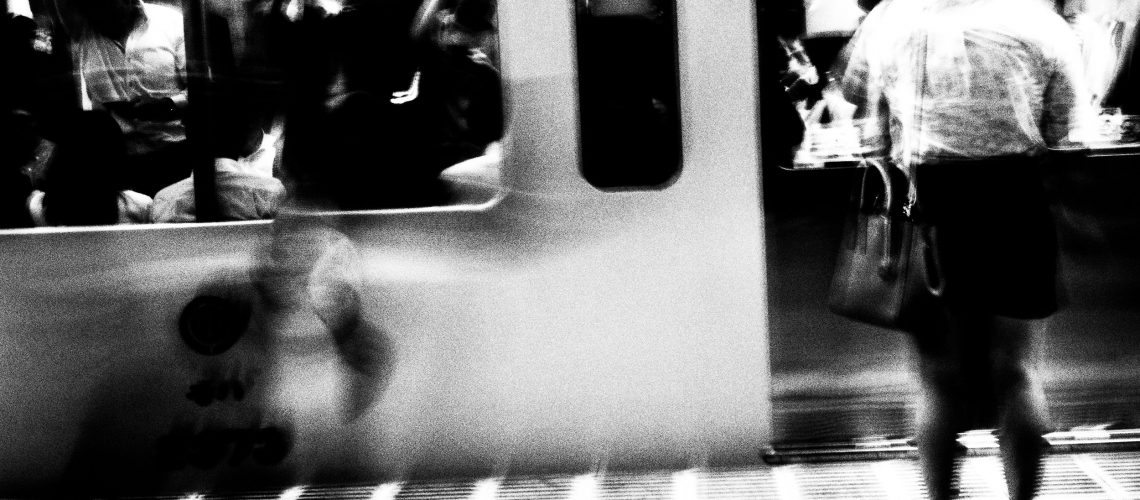This post originally appeared on a previous personal blog. I’m republishing it here with the original post date.
There is a large park near my apartment of which I am particularly fond. From the day I first discovered it, within weeks of moving to Tokyo, it was a place where I was automatically comfortable. It’s a place where I can go to be surrounded by big trees, hear some legitimate (if somewhat limited) sounds of nature, and occasionally meet a friendly stray cat. There’s a murder of crows that hangs out in the forest canopy above the fenced-off area where Shakujii castle stood eight hundred years ago, adjacent to Shakujiihikawa Shrine. A beautiful place given a spooky edge by the history of the place set against the eerie calls of the crows (and Japanese crows are decidedly spookier-sounding than their North American brethren). There are ample cherry blossoms in the spring and big toads in the underbrush on warm summer nights. When it rains, alien-looking flatworms emerge from the topsoil, bright yellow and strange.
If you look up Shakujii Koen on Google Maps, you will see that it is in two large sections, divided by a road through the middle. Just south of the eastern end of the lake in the eastern half of the park is an open area with a few picnic tables, some benches, a public toilet, and a payphone. Two of the three picnic tables would form a line running east-west were you to connect them, with the third table forming a triangle, the long leg of which points roughly southwest. Crickets are the predominant sound there on a cool October evening like this, with trains on the Seibu Ikebukuro line ghosting by five hundred meters away, not seen from the tables but heard quietly. Were you listening to the scene through headphones, it would make a nice stereo effect.
I’m hearing it in person and in real time, as I’m sitting at that third, more southerly table with my laptop. It’s a quarter to midnight and the trains will run a little while longer, maybe another hour or so, but then they’ll cease for the night. If I’m still sitting here writing then, I probably won’t notice that they stopped until some time later when I realize I haven’t heard one in a while. That’s how it was with the cicadas this year. It seemed like they took their time to show up this summer, and were glorious in their intensity for a while, but then one day I realized that only a few were left calling, and within a week those last few were gone as well.
I lost track of the cicadas in a span of weeks during which I was trying to put my head back together and in a general state of tunnel-vision. My sleep had been bad. As in really bad. As in bad enough for long enough that I’d had a couple blackouts and hypnopompic hallucinations, which are essentially what happens when you momentarily doze off, but not all of your brain wakes up again, so you’re served up sensory hallucinations as if in waking dreams, but while doing something like teaching or waiting for the train. When the train platform feels like a floating boat dock under your feet and amorphous dark blobs are bouncing around in your peripheral vision, you don’t feel especially well-connected to reality. Nor do you feel especially connected to the passage of time in any normative sense when bad sleep is bookended by panic attacks and the patterns of everyday life become intuitively navigable through the use of relative stress levels as familiar features of an internal map.
I went to the doctor, who gave me something for the anxiety and something else to help me sleep. It was enough to break the stress/insomnia feedback loop, but as I regained more of a hold on general awareness of life beyond the basic requirements of employment and sustenance, I realized I had all but completely missed the departure of the cicadas. When had it even happened? What else had I missed in that time? My apartment had imploded again, but that was no surprise (though there were some surprises as I dealt with the snowdrift-like concentration of laundry that had accumulated at the foot of the bed – no longer was the whereabouts of my other work pants a mystery, for example). In that time, dates with the amazing woman I had met had ceased and she had made an exit. I’d continued to make photos as usual throughout those weeks, as doing so is pretty much as automatic a part of my existence as breathing. A thousand or so frames of obscure shadows and interstitial fragments of the urban environment: spaces in which float inexpressible things, just out of reach of exposition but always within range of feeling.
In the last week or so, my apartment has become more orderly, seemingly of its own accord, like the sky clearing after a summer storm. I washed clothes, hung them to dry, and folded them dutifully when the wind had done its work. Dishes were washed. All of them. When I took out the recycling, I had a large bag bulging with the simple plastic containers in which one buys ready-to-eat foods at grocery stores in Japan. Black plastic tray, clear plastic lid, and between the two would have been something like pasta salad or a boxed lunch complete with rice, fish, and a couple tiny side dishes. When had I last cooked? It had to have been a month before, or at least close to it. The grocery store meals taste pretty good and are reasonably-priced. Their greatest advantage, however, is that the only thing they require of you is the simple physical action of transporting the food from container to mouth.
Most of the containers came from the same supermarket, the one on the ground floor of my train station. Finishing work a little after 9:00 PM many nights and then embarking on an hour-plus commute, it’s usually about 10:30 when I get off the train. By this time, the remaining ready-to-eat food options in the display case are getting sparse and there’s competition from other zombie commuters. There’s typically a worker with a barcode scanner and label printer working her way down the refrigerator case, too, marking down items as it gets closer to closing time. Behind her trails a small, rheumy-eyed crowd that decides what to eat based primarily on what’s cheap, not for economic reasons so much as because it’s easier to be motivated by a number than on the vague sense of what one supposedly wants to eat when the drudgery of the salaryman lifestyle dictates that one must still eat, but doesn’t afford enough energy for enthusiasm. If nothing catches the shopper’s eye, he or she might settle for instant ramen or embark on a listless perambulation around the periphery of the store, hoping for something to stand out (things rarely do) before drifting out the front door into the night, having given up and shuffling for the 7-Eleven.
There is so much of this spiritless drifting here at the ends of the day. A bone-aching fatigue that keeps one from sleep and an overfullness of the day-after-day that trends the heart toward empty. On packed commuter trains and winding down dark residential streets as we disperse into our neighborhoods from the station, rarely are we by ourselves but often are we alone. Some of those around me in transit are heading back to homes shared with people they love. They have concrete points of reference and purpose by which to navigate. Many of us lack those ties, however. We are untethered and drifting. Free, yes, and in ways that can be wonderful. But we are also free to drift into strange waters with neither map in hand nor wind in our sails. We get into trouble there sometimes, bobbing in the murk below unfamiliar stars.
On Friday, I walked home from an errand instead of taking the train because the train wasn’t running. Someone had jumped in front of it. This isn’t uncommon – there are nearly 70 suicides a day in Japan. These are people who have drifted too far and can’t find their way back home. In time, some find themselves instead at the edge of the world, hanging there for a long moment before falling off into the void. Not all, though. Some continue to drift until currents push them back into familiar waters. Others wake from their stupor, either with a start or a slow, heavy-lidded blinking recognition, either way choosing a direction and paddling, knowing the dark place the drift might take them.
If this untethered state is the world in which one lives daily, then the unlit, entropic topography may seem desolate. Still, there is freedom in it. What is the point of freedom amidst desolation, you might ask. The fundamental plasticity of existence, that’s what. Just as considering the total and complete insignificance of human affairs in the context of the unknowably-immense physical universe and the laughable brevity of human existence against the scale of geologic time can actually inspire a greater sense of personal agency and joy, the terrifying perceived helplessness of the unmoored drift can become a peaceful float on a friendly sea when we realize that, while we may often feel alone, we are only rarely by ourselves. Untethered is not untetherable, and no drift is unending.

